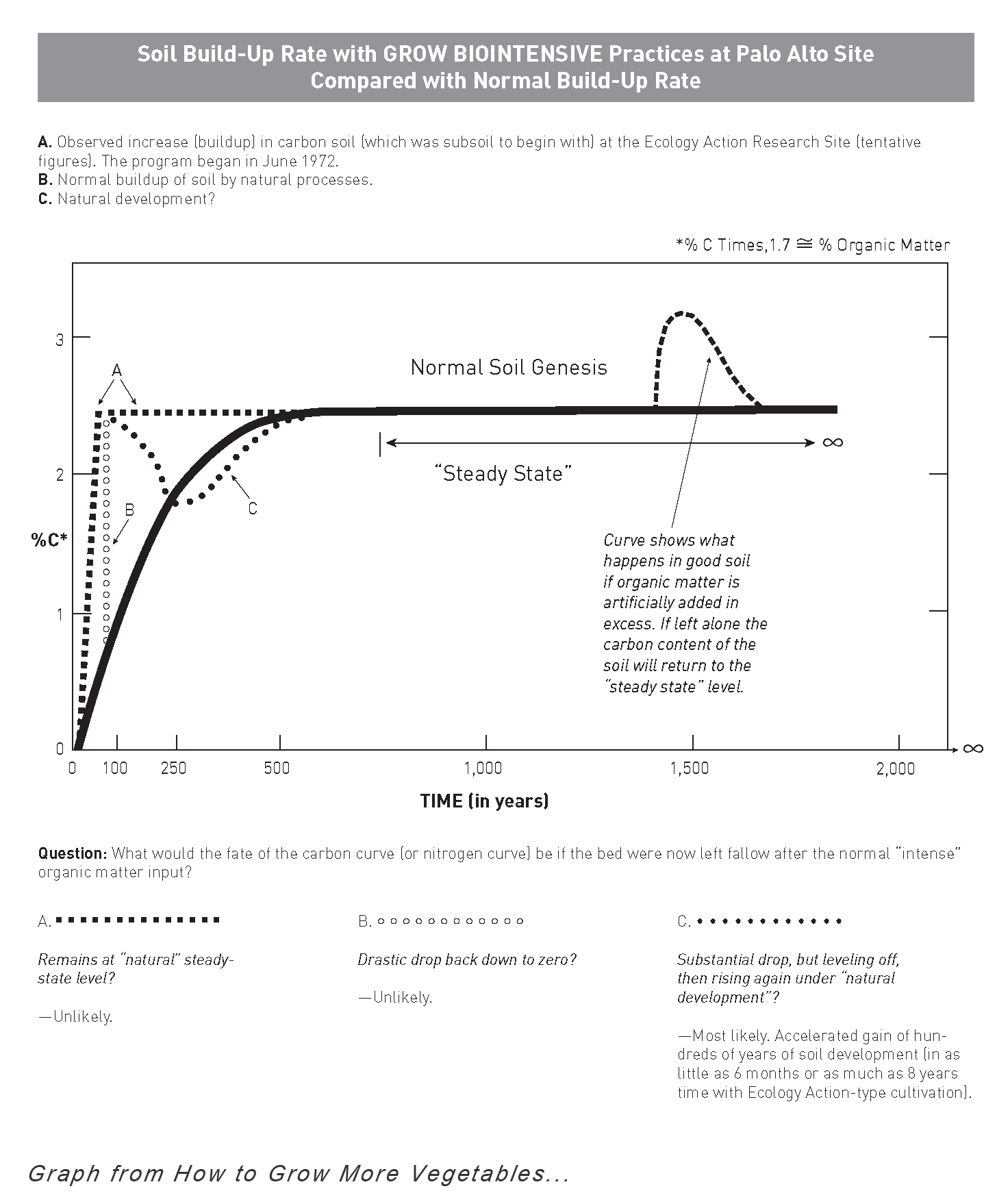Synthetic Nitrogen Destroys Soil Carbon Grist (grist.org) published an article titled "New research: synthetic nitrogen destroys soil carbon, undermines soil health" focusing on two recent papers by researchers at University of Illinois showing that synthetic nitrogen fertilizer use reduces soil organic matter (SOM) levels. They also show that as SOM dissipates, the soil's ability to store organic nitrogen declines, creating a treadmill effect where fertility declines with each application of fertilizer. "For all of its ecological baggage, synthetic nitrogen does one good deed for the environment: it helps build carbon in soil. At least, that's what scientists have assumed for decades. If that were true, it would count as a major environmental benefit of synthetic N use. At a time of climate chaos and ever-growing global greenhouse gas emissions, anything that helps vast swaths of farmland sponge up carbon would be a stabilizing force. Moreover, carbon-rich soils store nutrients and have the potential to remain fertile over time–a boon for future generations. The case for synthetic N as a climate stabilizer goes like this. Dousing farm fields with synthetic nitrogen makes plants grow bigger and faster. As plants grow, they pull carbon dioxide from the air. Some of the plant is harvested as crop, but the rest–the residue–stays in the field and ultimately becomes soil. In this way, some of the carbon gobbled up by those N-enhanced plants stays in the ground and out of the atmosphere. Well, that logic has come under fierce challenge from a team of University of Illinois researchers led by professors Richard Mulvaney, Saeed Khan, and Tim Ellsworth. In two recent papers (see here and here) the trio argues that the net effect of synthetic nitrogen use is to reduce soil's organic matter content. Why? Because, they posit, nitrogen fertilizer stimulates soil microbes, which feast on organic matter. Over time, the impact of this enhanced microbial appetite outweighs the benefits of more crop residues. And their analysis gets more alarming. Synthetic nitrogen use, they argue, creates a kind of treadmill effect. As organic matter dissipates, soil's ability to store organic nitrogen declines. A large amount of nitrogen then leaches away, fouling ground water in the form of nitrates, and entering the atmosphere as nitrous oxide (N2O), a greenhouse gas with some 300 times the heat-trapping power of carbon dioxide. In turn, with its ability to store organic nitrogen compromised, only one thing can help heavily fertilized farmland keep cranking out monster yields: more additions of synthetic N. The loss of organic matter has other ill effects, the researchers say. Injured soil becomes prone to compaction, which makes it vulnerable to runoff and erosion and limits the growth of stabilizing plant roots. Worse yet, soil has a harder time holding water, making it ever more reliant on irrigation. As water becomes scarcer, this consequence of widespread synthetic N use will become more and more challenging. In short, "the soil is bleeding," Mulvaney told me in an interview." In contrast, GROW BIOINTENSIVE Sustainable Mini-Farming has been shown to build SOM up to 60 times faster than in nature (see the soil sample images and evidence of SOM buildup below), and provides high yields sustainable over time without the use of synthetic fertilizers.
Images (center, left): Soil sample and core taken from a GROW BIOINTENSIVE bed in the Common Ground Research Garden in Palo Alto, CA. Notice the difference in color and structure from the top to the bottom of the sample. The darker soil at the top indicates soil organic matter (SOM) buildup. The lighter SOM-depleted soil at the bottom is what we started with. Soil prepared 24 inches deep using GB can affect fertility as deep as 39 inches. Here is a higher-resolution images of the graph from HTGMV, mentioned above, which clearly shows the distinctive soil organic matter buildup unique to GROW BIOINTENSIVE Sustainable mini-farming.
top | Newsletter Home |Table of Contents| Archive
|


.jpg)

